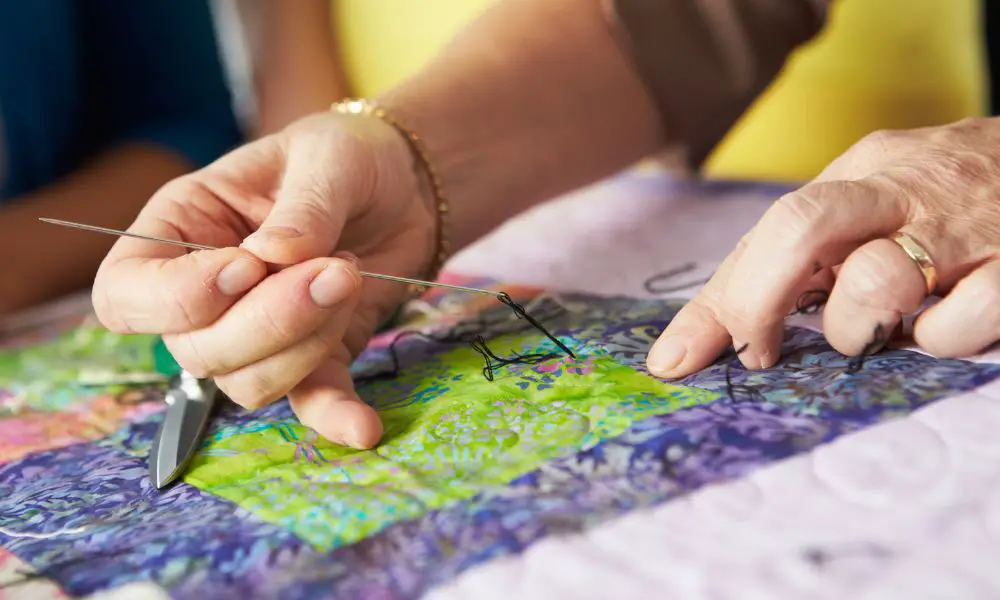

Have you ever snuggled beneath a soft, intricately designed quilt and wondered about the history and artistry behind it? Quilting has been around for centuries and has played an important role throughout history as a means of personal expression, recording local history, and providing warmth and comfort.
Today, we see quilts as beautiful, functional pieces of home decor, but originally, quilts had a very practical purpose. To pay homage to this beautiful art form and uncover the truth of its origins, let’s take a closer look at the history of quilting.
Quilting is the process of joining together multiple layers of fabric, typically with a decorative pattern, to create a thicker, warmer textile. A quilt usually comprises two layers of woven fabric with a soft, insulating material sandwiched between—often cotton, wool, or synthetic filler.
The art of quilting has a rich history that spans numerous cultures, and it has grown into an esteemed tradition and form of artistic expression. Where exactly quilting began is debated, but historical evidence suggests it dates back to ancient Egypt, around 3400 BCE. The oldest known depiction of quilting can be found in an ivory carving of an Egyptian pharaoh wearing quilted cloth.
Quilting was also prevalent in China, India, and Mongolia. Some of the oldest quilts were discovered in Scythian tombs in modern-day Russia.
During the Crusades, knights wore quilted garments beneath their armor for added comfort and protection. By the medieval period, quilting had become widespread throughout Europe, where it was adopted to create bedding, tapestries, and garments.
The history of quilting in America started in the 17th century, when European settlers brought the craft with them. Early American quilts served primarily utilitarian purposes and were functional as bed coverings, winter wraps, and even doors. Women would gather for “quilting bees,” sharing knowledge and techniques and socializing as they worked jointly on a quilt.
The impact of quilting on the Black community is also significant. The incredible artistry and symbolism embedded in these quilts are powerful tools for storytelling and cultural preservation. Though some debate remains, some historical theories state that enslaved people created secret codes and relayed safe house locations and secret paths to others.
Numerous techniques and styles of quilting have emerged throughout quilting’s extensive history. Some of the most popular methods include:
Patchwork quilting involves joining together small square fabric pieces to create a larger, vibrant design. This method gained popularity during the American Civil War and the Great Depression, when resources were scarce.
Especially popular in Hawaiian and Baltimore quilts, this technique involves sewing smaller fabric shapes onto a larger piece of background fabric to create artistic, intricate designs.
In this method, the entire quilt is made from a single piece of fabric, with the artistry coming from the intricate stitches that create the patterns and texture.
When comparing traditional and modern quilting, today’s quilters are experimenting with new techniques and materials to create unique designs. The rise of technology has also enabled quilters to connect with like-minded creatives worldwide, who can share ideas and techniques through social media, and it has made quilting a more accessible craft overall.
Quilting has also extended its reach beyond household items, with artists incorporating quilting into wearable art, home decor, and even large-scale installations. Quilting exhibits and competitions continue to draw crowds of enthusiasts globally, showcasing the incredible skill and creativity involved in this timeless craft.
Craft a nurturing nursery with DIY projects and clever storage tips while preparing your heart…
Discover how paid surveys work, if they're legitimate, tips for success, and realistic earnings expectations.…
Making your business ADA-compliant is much simpler than you realize and it’s also nonnegotiable, including…
Maintain your diesel turbocharger with our expert tips to ensure durability, efficiency, and peak performance…
If you’re a dedicated foodie, these fun facts you never knew about onions will definitely…
Are you tired of letting your receipts pile up without any benefit? What if those…